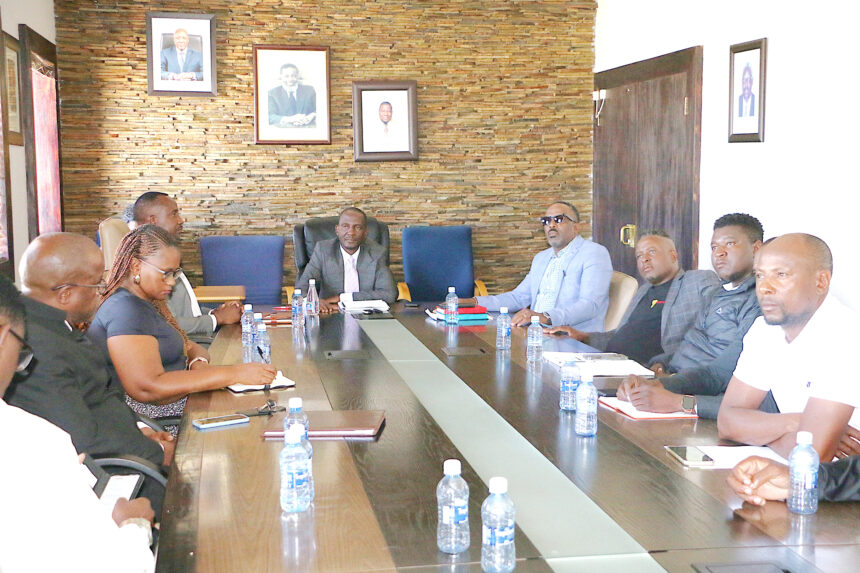Heather Erdmann
Transport minister Veikko Nekundi says the full-blown seven-seaters’ association plays an integral role in the country as drivers contribute to the country’s economy.
“They are the ones who ensure that citizens are enabled to travel in-between towns, as Namibia is a vast country with large distances to travel. The seven-seaters also participate in the economic mainstream of the country; therefore, they are very important,” he said when he met members of the association recently.
He noted that the legal operations of the seven-seaters will now contribute to their well-being by providing for their families, and paying for other commodities in the country.
Nekundi said the limitation of the distance of a 250km radius regime that was there is a thing of the past, and is no longer going to be applicable.
As such, permits issued under the 250km radius were revoked and are no longer valid. “They must get new ones and apply for new permits. This will enable them to travel any distance of their choice. This is in accordance with the Namibian Constitution, which gives Namibian citizens the right to trade in activities of their choice, as long as it is legal. They are the custodians of knowledge to know which route and which distance are of economic value to them,” he said.
Nekundi also appealed to the seven-seater association leaders to educate their members to adhere to the rules and regulations of the transport industry.
“We are elected by citizens and must serve the nation fairly, equally and without discrimination. The operators must believe that they can come to the office of the minister, and that their problems can be solved,” the minister said.
Reactions
Seven-seater drivers expressed gratitude to the transport minister for giving them the green light to operate with permits.
The fight dates back to 2011.
New Era visited the B1 service station, and spoke to some drivers.
Driver-turned-loading station facilitator Pecks Sheehama (34) said, “We have been fighting for so long, but we appreciate the government for hearing our cries to give us permits. Traffic officers were bullying us for not having permits. It is a good thing.”
He sustains his family through his current job, and said now that drivers will no longer be subjected to fines as high as N$4 000, they are sure to prosper.
“Transporting passengers is also a source of income. It is good for the government to look at us and count us as Namibians,” he said.
Jonas Panduleni (23), who usually drives from the city to Walvis Bay and Swakopmund, said, “I feel happy for the opportunity and finally getting what we were fighting for. Now, we will not get those N$4 000 tickets. The government should also provide affordable loading stations where the people have toilets, cleaners and security personnel to keep the place safer and combat violence,” he said.
Forty-two-year-old Monde Kaulinge, who has been a loading master for eight years, ensures the safety of the passengers from snatchers and robbers, in the absence of proper security.
“We always take care of passengers, and ensure there is order. If someone comes to grab a bag from a passenger, we will chase them out of here,” he said.
-herdmann@nepc.com.na
Photo: Heather Erdmann



